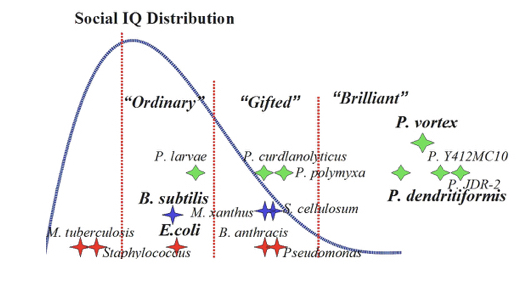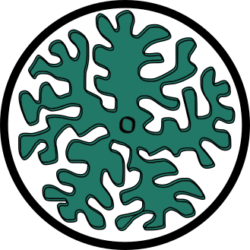Biological adaptation is computation. In this framework, biological material can be used as wetware. HomeScope has a biological support system to keep a living sample for a determined period of time. Different culture modules are considered: petri dishes, modified petri dishes, as well as DIY micro-fluidics based synthetic ecosystems.
Soil ecosystems
Soil is still available everywhere, we like soil in particular because is full of swarming collective intelligence; a trait exhibited by commonly available soil bacteria. Thus, by conducting natural history studies of local soil ecosystems we can all sample earth soil ecosystems.
Bacterial Social Intelligence

Bacteria are intelligent social systems which like ants and other social insects are collective computing systems know as liquid brains. Recent genomic comparative studies set bacteria of the genera pant as the smartest one available. Their intelligence is believe to be proportional to the number of information processing systems presents on their genomes. Three basic categories of bacteria are recognised: ordinary, gifted, and brilliant.
Adaptation and Evolution
A culture system induces a fitness landscape which after sequential expansions of isolated populations on the culture system’s environment. Recursive expansions, generations after generations is a know manner to exploit the adaptation of life forms to a given context. We aim to select for swarmer strains trained (evolved) to play My Swarm.
Genomics, swarm intelligence, & landscape ecology
As sequencing tech gets cheaper we can follow up on the social IQ idea being related to the abundance of information processing molecular devices. We study the scaling of such genomic pattern with the ability of winning the struggle for existence in competitive experiments.
